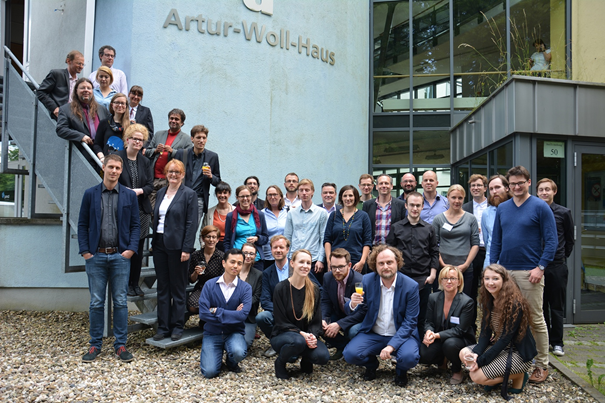
About
The Graduate School »Locating Media« was set up in 2012 and has focused on researching historical and current media practices ›in motion‹ and ›in situ‹. The main objective of »Locating Media« is to facilitate a methodological re-orientation of interdisciplinary media research by engaging with locational and situational analyses and the development of new methods for the analysis and design of mobile digital media.
The first funding period was dedicated to empirically and conceptually account for the »renaissance of location« of media and its converging technical, conceptual, design-oriented and everyday dimensions. The second period will expand existing expertise in ethnographic methodologies to research the dispersed spatiality and distributed situations of mobile media and data practices, offering a relevant contribution to the development of inventive methodologies in fields of media studies and sociology.
Mobile media require mobile methods. Contemporary media usage increasingly takes place on mobile devices – including laptops, tablets, smartphones or proliferating wearable devices. Mobile media engagement entails an expansion of media related situations, which are no longer limited to a specific place, but characterised by virtual co-presence, simultaneous online and offline activities, and distributed information infrastructures. Media contents are becoming more dynamic and algorithmically generated, especially in the context of data-intensive digital platforms and the augmented spatiality of emergent visual media. These developments contribute to an increased mobility of both media and their data across heterogeneous spaces and also affect the ways in which the history of networked media can be written and conceptualised. To account for this mobility, the research training group approaches media historiography from a praxeological perspective and draws on intersections to science and technology studies.
In order to facilitate a maximum amount of successful dissertations and to connect them closely to key developments in the field, the research training group works with early career researchers to support the supervision process. Its training program entails the involvement of renowned visiting scholars, internationally leading cooperation partners and a mentoring program for women to enable doctoral candidates to connect to relevant academic networks early on – as one of the research training group’s main objectives is to advance the candidates’ visibility and embeddedness within international academic publics. The second funding period of »Locating Media« thus stands out through its aim to intersect media-historiographical, ethnographic and digital methods and to reflexively explore their interdependencies in order to create a dialogue between the divergent »communities of practice« in media scholarship and to advance fundamental research in the context of German media studies.

